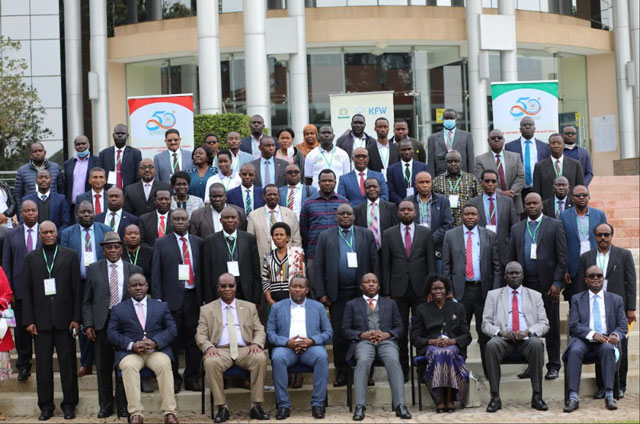
Nairobi, Kenya | THE INDEPENDENT | Growing disruptions and new developments in higher education have prompted leaders and policy makers in the sector back to the drawing board to discuss the future of higher education in the East African Community (EAC).
The Inter University Council for East Africa (IUCEA), a specialised institution of EAC responsible for development of higher education in the region, on Thursday organised a conference in Nairobi to start discussions and generate policy recommendations to shape the future of higher education the region.
Because of technological advancements such as artificial intelligence and augmented virtual reality coupled with alternative models of higher education, championed by technology firms, education experts have highlighted the need to re-think the traditional model.
Speaking at the Conference, Ken Obura, the Chief Administrative Secretary, who represented the Cabinet Secretary for Ministry of EAC and Regional Development in the Republic of Kenya, Adan Mohamed, asked IUCEA to take a lead in reforming higher education and guide policy direction to produce graduates with requisite skills for socio-economic transformation of the region.
“I challenge higher education institutions not to just be victims of change but to also impact change by producing graduates that are flexible and proactive in their response to changing times. This is the only they will create impact in our economies,” Mohamed said.
Stephen Niyonzima, the Director Social and Productive Sectors who represented Dr. Peter Mathuki, the Secretary General, East African Community underscored the relevance of collaborative research among universities in EAC to address socio-economic challenges in the region.
“I encourage IUCEA to bring our scientists together and establish regional research hubs or networks for the purpose of undertaking collaborative research targeting problems that beset the region,” Dr Mathuki said. “There is need to constantly review and adapt education curricula to remain in tandem with the current development agenda of the region, needs and trends in the society and labour market,” he added.
IUCEA Executive Secretary, Prof. Gaspard Banyankimbona reiterated IUCEA’s commitment to be a champion of reforms needed to refocus higher education curriculum to meet the needs of the labour market by producing graduates that solve socio-economic challenges.
“The emergence of new technologies has drastically changed the education landscape and put emphasis on skills in the production sector, which requires graduates with competencies that match the industry demands,” Prof. Banyankimbona said.
Globally Universities are facing competition from technology-driven platforms such as EdX, Coursera, and other similar platforms points as alternative forms of education.
The post East African Vice Chancellors, policy makers agree to reshape future of higher education appeared first on The Independent Uganda:.
from The Independent Uganda: https://ift.tt/2WxzcOu
0 Comments